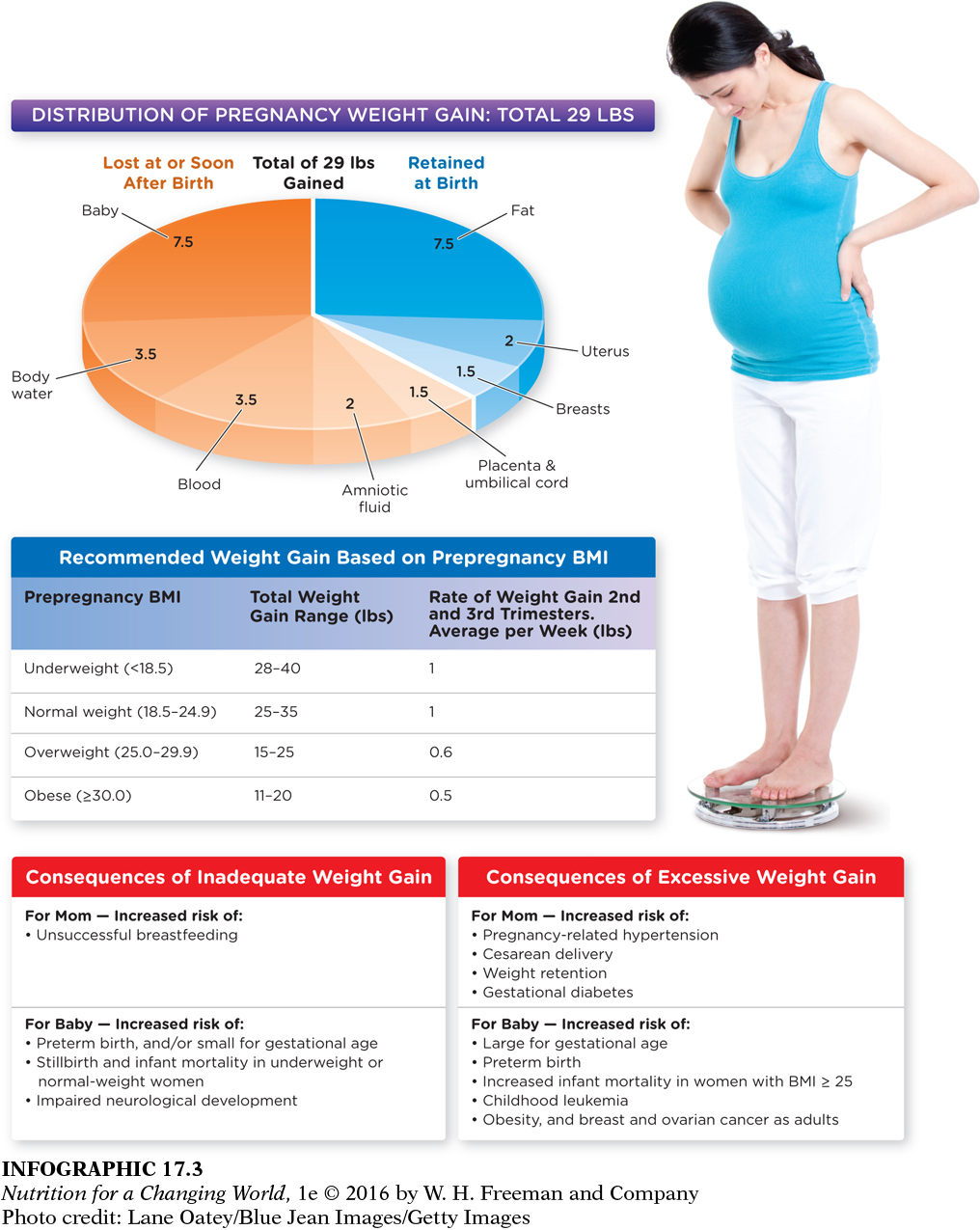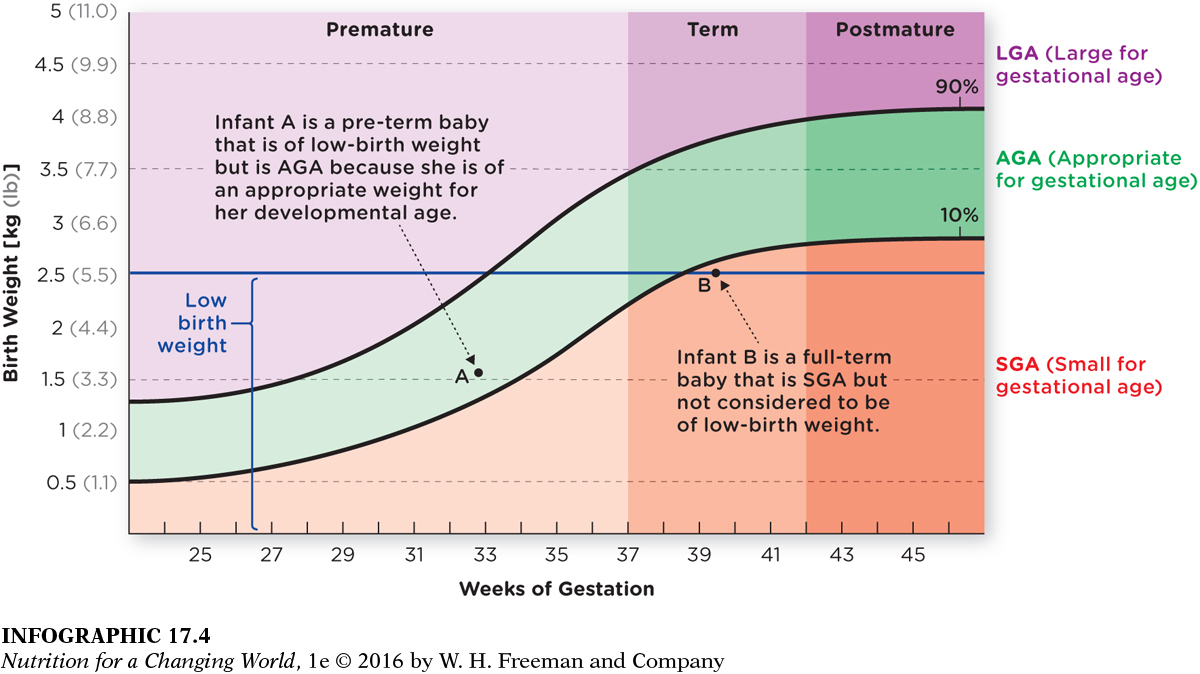CHANGING NUTRITIONAL NEEDS
Once a woman is pregnant, her body makes gradual yet significant changes to support the growth of the fetus, and this shift alters her nutritional needs. One key change is that her heart works harder and pumps more blood throughout her body—
Metabolic rate is also affected, and subsequent energy demands increase between 5% and 20% due to the oxygen demands of the developing fetus and maternal support tissues. A pregnant woman’s energy needs thus increase to compensate. Because a fetus prefers glucose as a primary fuel source, the mother’s body provides glucose to her developing baby from the food she digests and uses predominantly fatty acids to fuel her own needs.
395
Women need extra food and nutrients to help their babies grow. However, more than half of all women are overweight (defined as a body mass index [BMI] over 25) or obese (BMI over 30) when they become pregnant. Still others gain too much weight during pregnancy—
Appropriate weight gain in pregnancy
In 2009, the Institute of Medicine reexamined the guidelines on weight gain and recommended that women should ideally not only have a healthy BMI (see Chapter 15) when they conceive, but that they should gain weight within a certain range that depends on whether they go into pregnancy underweight, at normal weight, overweight, or obese. For example, a woman with a normal or healthy BMI before pregnancy would be given a recommendation to gain 25 to 35 pounds while a woman with a BMI in the obese range would be given a recommendation to limit weight gain to between 11 and 20 pounds. (INFOGRAPHIC 17.3)

SMALL FOR GESTATIONAL AGE (SGA) a birth weight that is below the 10th percentile of gestational age
Underweight women and those who fail to gain sufficient weight during pregnancy can also potentially compromise the health of their babies by increasing the risk that they will be born preterm, meaning younger than 37 weeks, or born too small for their age (small for gestational age, or SGA). SGA is defined as a birth weight that is below the 10th percentile of gestational age. SGA infants are not only at a higher risk of stillbirth and dying, they also have a heightened risk for medical conditions such as hypertension, diabetes, and heart disease as adults. With new and advanced medical technologies, babies born prematurely or SGA, are more likely to survive—

Question 17.1
 What is the approximate weight range of an average infant that is born at 36 weeks of gestation?
What is the approximate weight range of an average infant that is born at 36 weeks of gestation?
An infant born at 36 weeks’ gestation would have an appropriate for gestational age weight of 4.4 pounds to about 7 pounds (about 2 kg to 3.2 kg).
Factors influencing birth weight
Because of the risk of not gaining enough weight, even overweight or obese pregnant women should not “diet”; doing so increases the risk of delivering a low-
Nutrition before conception
FERTILITY the capability to produce offspring
Eating well to sustain the fetus involves establishing a healthy lifestyle far before conception occurs. A woman who is physically active, eats well, makes responsible choices by not smoking or using harmful substances, and gets regular medical care is much more likely than a less healthy woman to be fertile, that is, to have the ability to produce offspring and have a healthy pregnancy.
